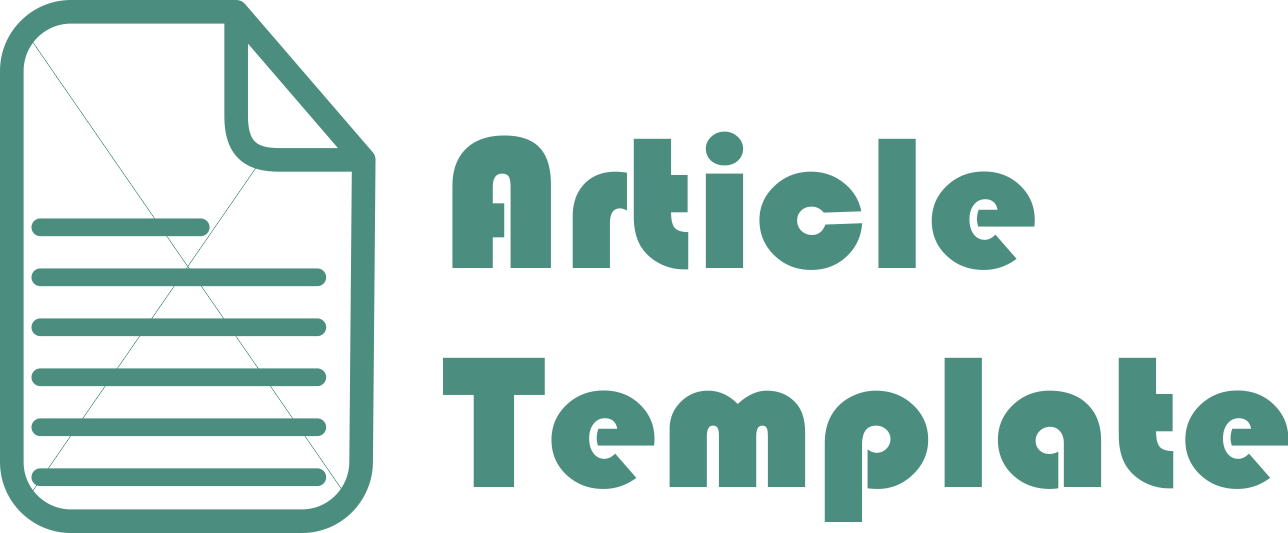Differentiated Learning to Solve Arabic Learning Problems Faced by Non-muslim Learners
DOI:
https://doi.org/10.32332/ijalt.v6i02.9775Keywords:
Arabic learning, Non-muslims, Differentiated learningAbstract
This study examines the application of differentiated learning to address challenges faced by non-Muslim students learning Arabic in the 11th-grade Science class at SMAN 11 Bandung. Differentiated learning, which adjusts teaching methods to students' readiness, interests, and learning profiles, was implemented to tackle linguistic and non-linguistic barriers in Arabic language acquisition. A qualitative case study method was employed, involving interviews, observations, and document analysis to collect data. Key findings indicate that non-Muslim students face difficulties in phonetics, vocabulary, and grammar, compounded by non-linguistic issues such as limited teaching materials and environmental distractions. Differentiated learning strategies—tailored content, processes, and products—helped mitigate these challenges by aligning teaching with individual needs. The study highlights the universal appeal of Arabic as a language and recommends employing differentiated learning to enhance inclusivity and learning outcomes in diverse classrooms. This approach provides a framework for educators to foster equitable learning opportunities, ensuring all students can thrive academically
References
Alfin, Nur. (2023). Analisis penerapan pembelajaran berdiferensiasi dalam pembelajaran bahasa Arab di SMAN 1 Lamongan (Tesis). Universitas Islam Negeri Sunan Ampel Surabaya.
Alfurqan, A., Trinova, Z., Tamrin, M., & Khairat, A. “Building a Teaching Personal Philosophy: The Concept of Basic Development and Education.” Tarbiyah Al-Awlad: Journal of Islamic Education at the Elementary Level 10, no. 2. (2020). https://ejournal.uinib.ac.id/jurnal/index.php/alawlad/article/view/2579/0
Al-Ghalayaini, M. Jâmiʻ al-Durûsal-ʻArabiyyah. Beirut: al-Maktabah alʻAshriyyah, 2003.
Al-Khuli, M.A. Asâlîb Tadrîs al- Lughah al-ʻArabiyyah. Riyadh: Maktabah al-Farazdaq, 1989.
Akhera, M.I et al. “Looking at Non-Muslims' Positive Perspectives on the Urgency of the Arabic Language as an Effort to Reject Sacred Stigma in Umm Society in Indonesia.” FITUA: Journal of Islamic Studies 4, no. 1 (2023). https://ejournal.stitbima.ac.id/index.php/fitua/article/view/445
Arends, R. I. Learning to Teach. New York: Mc Graw Hill Companies, 2007.
Arsad, MI et al. “Types, Classification and Characteristics of Learning Media.” AL-MIRAH: Journal of Islamic Education 4, no. 1 (2022). https://ummaspul.e-journal.id/Al-Mirah/article/view/5287
Barlian, Ujang Cepi, et al. “Implementation of Differentiated Learning in the Independent Curriculum in United Kingdom Subjects.” ARMADA: Journal of Multidisciplinary Research 1, no. 8 (2023): 815-822. https://www.researchgate.net/publication/373662071_IMPLEMENTASI_PEMBELAJARAN_BERDIFERENSIASI_DALAM_KURIKULUM_MERDEKA_PADA_MATA_PELAJARAN_BAHASA_INGGRIS
Destiny, Takdir. “Problems of Arabic Language Learning.” Naskhi: Journal of Arabic Education and Language Studies 2, no. 1 (2020). file:///C:/Users/hp/Downloads/PROBLEMATIKA_PEMBELAJARAN_BAHASA_ARAB.pdfm
Fahrurozi, Aziz. “Arabic Language Learning: Problems and Solutions.” Arabiciyat Journal: Arabic Language and Arabic Language Education 1, no 2 (2014). https://journal.uinjkt.ac.id/index.php/arabiyat/article/view/1137
Firdaus, A. M., & Bakhtiar, A. M. “Differentiated Learning Strategies to Address the Diversity of Student Response Levels at UPT SDN 25 Gresik.” Didactics: Scientific Journal of Pgsd Stkip Subang 8, no. 2 (2022). https://journal.stkipsubang.ac.id/index.php/didaktik/article/view/529
Fitra, D. K. “Differentiated Learning in the Perspective of Progressivism in Science Subjects.” Journal of Indonesia Philosophy 5, no. 3 (2022): 250-258. file:///C:/Users/hp/Downloads/Devi+Kurnia+Fitra+250-258.pdf
Herwina, W. “Optimizing student needs and learning outcomes with differentiated learning.” Perspectives on Education 35, no. 2 (2021): 175-182. https://journal.unj.ac.id/unj/index.php/pip/article/view/22057
Jamaluddin. Problems of Language and Literature Learning. Yogyakarta: Adi Cita Karya Nusa, 2023.
Karten, Toby J. Inclusion Strategies That Work!: Research-Based Methods for the Classroom. California: Corwin Press, 2005.
Marlina. Guidelines for the Implementation of Differentiated Learning Models in Inclusive Schools. PLB FIP UNP, 2019.
Mufidah, et al. “Ana lysis of Problematics in Arabic Language Learning: Linguistic and Non-Linguistic Approaches.” Muhibbul Arabiyah: Journal of Arabic Language Education 3, no. 2,(2023).https://muhibbul-arabiyah.uinkhas.ac.id/index.php/pba/article/view/113/43
Mujiono, M., Degeng, I. N. S., & Praherdhiono, H. “Development of a blended learning system based on universal design for learning for inclusive classrooms.” Journal of Education: Theory, Research, and Development 3, no. 6 (2018): 758-763. http://download.garuda.kemdikbud.go.id/article.php?article=716974&val=9626&title=Pengembangan%20Pembelajaran%20Sistem%20Blended%20Berbasis%20Universal%20Design%20for%20Learning%20untuk%20Kelas%20Inklusif
Nutresnaningsih, Ineu. “Students' problems in learning Arabic and efforts to overcome them.” Al-Suniyat : Journal of Arabic Language, Literature and Culture Research 1, no. 1 , (2018). https://ejournal.upi.edu/index.php/alsuniyat/article/view/24196/11701
Rifqiyah, Nur Alfin N. Tahlil Tathbiqh Ta'allum Al-Tamayuz Fi Ta'allum Al Lughah Al Arabiyah bi manahij Al Ta'allum Al-Mustaqili Fi Al Madrasah Al-Aliyah Al Hukumiyah Lamongan, tesis. Sunan Ampel State Islamic University Surabaya. http://digilib.uinsa.ac.id/64102/1/Nur%20Alfin%20Nafidzatur%20Rifqiyah_D92219079.pdf
Samsudin, Mohammad. “Factors Affecting Learning.” Eduprof : Islamic Education Journal 2, no. 2, (2020). https://iaibbc.e-journal.id/xx/article/view/38
Sauri, Sofyan. “History of the Development of Arabic Language and Islamic Institutions in Indonesia.” INSANCITA: Journal of Islamic Studies In Indonesia and Southeast Asia 5, no. 1 (2020). https://journals.mindamas.com/index.php/insancita/article/view/1332/1159
Setiyo, A. “The application of collaborative differentiated learning by involving parents and the community to realize student's well-being during the pandemic.” Biome: Scientific Journal of Biology 11, no. 1, (2022): 61-78. https://journal.upgris.ac.id/index.php/bioma/article/view/9797/5306
Suwartiningsih, S. “Application of Differentiated Learning to Improve Student Learning Outcomes in Science Subjects Subject of Soil and Sustainability of Life in Class IXb Even Semester SMPN 4 Monta Academic Year 2020/2021.” Journal of Indonesia Education and Learning (JPPI) 1, no. 2, (2021): 80-94. https://media.neliti.com/media/publications/354275-penerapan-pembelajaran-berdiferensiasi-u-4d0ed8f3.pdf
Tomlinson, C.A. How to differentiate instruction in mixed-ability classrooms. Upper Saddle River, NJ: Pearson Education.p: 91, 2001.
Tomlinson, C.A. The Differentiated Classroom: Responding to the Needs of All Learning. Alexandria: Association for Supervision and Curriculum Development, 1999.
Thuʻaimah, Rusydı̂ Ahmad. Taʻlîm al-ʻArabiyah li Ghair-al-Nâthiqîna bihâ: Manâhijuhâ wa asâlîbuhâ. Rabath: Isesco, p. 194, 1989.
Uno, H. B., & Umar, M. K. Managing intelligence in learning: an intelligence-based learning concept. Bumi Aksara, 2023.
Utami, Sri. et al. “Differentiated Learning as an Effort to Meet the Needs of Students' Learning Styles in Project Science Subjects at SMKN 1 Kademangan.” Education Perspective 3, no. 1, (2023): 9-14. https://kayonmedia.com/jurnal/index.php/bp/article/view/201/110
Yani, D., Muhanal, S., & Mashfufah, A. “Implementation of Diagnostic Assessment to Determine Student Learning Style Profiles in Differentiated Learning in Elementary Schools.” Journal of Educational Innovation and Technology (JURINOTEP) 1, no. 3, (2023): 241-250. https://jurinotep.lppmbinabangsa.ac.id/index.php/home/article/view/27/27
Downloads
Published
Issue
Section
License
Copyright (c) 2024 Nurlatifah, Sugih Ardianto, Ammar Ahmed, Uus Ruswandi, Mohamad Eri Hadiana

This work is licensed under a Creative Commons Attribution-ShareAlike 4.0 International License.









